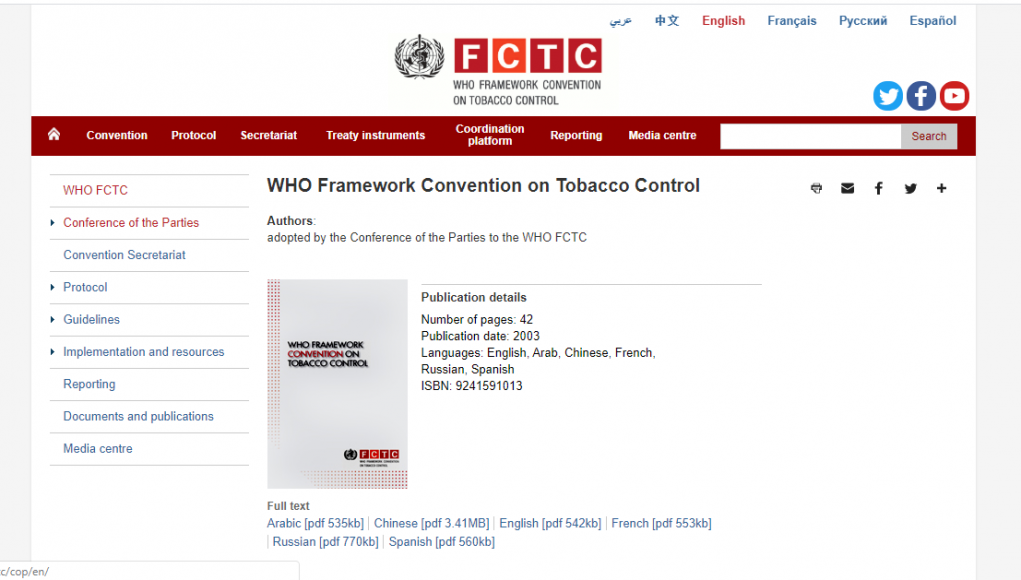The research team explored the Twitter activity around the eighth meeting of the Conference of the Parties to the World Health Organisation Framework Convention on Tobacco Control (WHO FCTC). Sadly, they innacurately claimed that most arguments in favour of next-generation products (NGPs) were tweeted by entities which are somehow affiliated with Big Tobacco.
In response to these accusations, a number of public health and tobacco harm reduction entities and experts spoke up, pointing out that actually most of the organizations the researchers are referring to are actually consumer organizations that want nothing to do with Big Tobacco. “This UK study used highly inaccurate and unfair descriptions that undermined the quality of the research and the reputation of the University of Bath. From as far away as New Zealand, we’ve raised concerns over the speculative method it employed without using any scientific evidence in labelling tobacco harm reduction advocates,” says Nancy Loucas, Executive Director for CAPHRA (Coalition of Asia-Pacific Tobacco Harm Reduction Advocates).
The NNA urges the CRUK to retrieve its positive comments about the study
The NNA concurred, and referred to the study as the “Bloomberg-funded report which was designed to paint the consumer voice as somehow part of a mythical tobacco industry plot.” In fact, the charity wrote to the CRUK urging the organisation to retrieve the positive comments posted about the study.
“We asked for “comments clarifying the position taken by CRUK towards consumer engagement on this matter” but have received no acknowledgement or reply. Sadly, the tweet in question still remains, celebrating consumers being marginalised when – quite rightly – objecting to opaque policymaking,” added the NNA, who also contacted the journal which published the study, explaining why it is inaccurate and misleading.
Another Bloomberg-funded report
Meanwhile, the STOP partnership, has recently released a report funded by a three-year grant of $20 million donated by Bloomberg. “This is the only product I know of where if you use it as advertised, it will kill you,” said Bloomberg about cigarettes in 2018, when he awarded the grant.
Ranking 57 countries based on their affiliations with Big Tobacco, sadly the report is biased as Bloomberg refuses to recognise safer nicotine alternatives such as electronic cigarettes and smokeless tobacco products as viable smoking cessation tools. To this effect it tends to inaccurately consider the tobacco industry and the vaping industry as one and the same.
CAPHRA Calls Out Bloomberg On Their Grant-For-Policy Strategy












